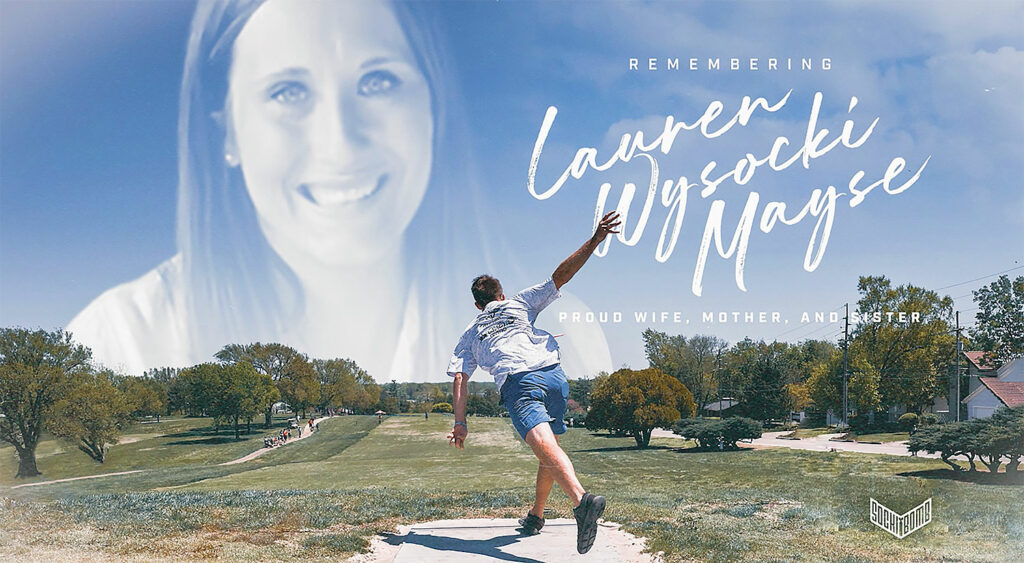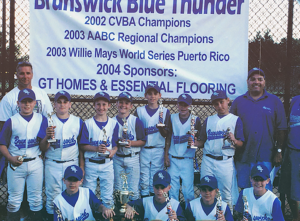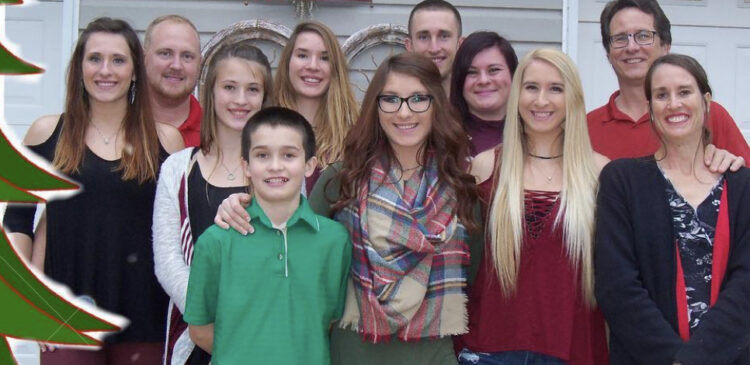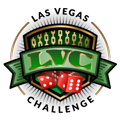Two-time world champion Ricky Wysocki talks about how he found disc golf, developed a love for the sport, and some of the challenges he’s had to overcome on the way to becoming one of the top players on tour.
The Early Years
As a kid growing up in Brunswick, Ohio, a suburb of Cleveland, Ricky Wysocki dreamed of becoming a professional baseball player. He might’ve done it. Ricky was a good athlete and had a natural feel for the skills of the game, digging out ground balls at shortstop and dinging singles and doubles from the leadoff position. One year, his team even made it to the Little League World Series. But that dream was derailed in an unlikely way—a neighbor walking by his house.
Listen to Ricky tell the story and it sounds almost as if he was ready to find a sport other than baseball. When Ricky commits to doing something, he dedicates himself to whatever it is. It’s often why he succeeds, and, occasionally, why he doesn’t. Ricky had been playing baseball for 10 years, starting with T-ball at age five or six. Ricky’s father was all-in on baseball too. “My dad liked baseball and wanted to see me grow and prosper and see if I could go to college and play,” Ricky says. By age 16, though, Ricky was getting burned out, and when a neighbor walked by his house one day carrying a few funny looking frisbees, Ricky took an immediate interest. “Honestly,” he says, “I think it was kind of the stereotypical your parents push you to do something, and you want to do the opposite.”
Discovering Disc Golf
Ricky eventually followed his neighbor down the road and realized the guy was headed to a nearby park where there was a disc golf course. Ricky told him he wanted to play, and the guy gave him his first two discs, a DX Roc and DX Valkyrie. Ricky walked onto the first tee pad and launched it the same way so many disc golfers throw their first shot: 50 feet into the air and about 20 feet in front of him. “It wasn’t this sexy story, 300 feet dead-straight.” Ricky says. “Sometimes you hear people say ‘Oh, he’s a natural.’ Not me. I had a stereotypical shank right off the bat.” Still, he was hooked.
By the time I got gas and food I didn’t make any money but, in my head, I was like ‘Oh yeah, I made $150!
He started playing all the time at that spot near his house, a tight, wooded course. Ricky was home-schooled, so he would finish his schoolwork early in the day and then head to the park. He’s all self-taught. From 10 a.m. to 6 p.m. he’d work on his game, playing three rounds a day throwing multiple shots on each hole. Ricky credits his skills as a shortstop for helping him learn the mechanics of throwing a disc. When he eventually started entering competitions, he thinks his time as a high-level baseball player helped him know how to react in pressure situations. The course he learned on, Roscoe Ewing Park, the oldest course in Ohio, taught him a lot too. “I think that’s the reason why I’m the player I am today,” Ricky says. “There’s a lot of different shots out there; it forced you to throw different angles.”
Ricky Wysocki In-the-Bag
These are the latest discs in Ricky’s bag
Ricky started to learn how to birdie holes consistently. He played doubles and entered a few local tournaments, where he played well. Eventually, someone suggested to Ricky that he might be ready for a step up, and so he traveled on the weekends to Michigan and Indiana for more regional events. Ricky’s parents had been supportive when he was playing close to home, but they were less enthusiastic about him branching out to play across state lines. “They were like, ‘Yeah, you need to start doing more schoolwork—start thinking about what you really want to do,’” Ricky says.
At that time, it was hard to imagine a future in disc golf. What’s more, his dad still wanted him to play baseball; he forced Ricky to try out for the high school team. So, Ricky, who was plenty skilled enough to earn a spot, hatched a plan to tank the tryouts so he could focus on disc golf. “I’m like, alright, here’s what I’m going to do, I’m going to go try out and I’m just going to completely stink it up.” He struck out on purpose; flubbed ground balls on purpose; dropped routine pop flies. “It was so hard to do that as a competitor,” Ricky says. But it worked: he didn’t make the cut. Ricky never explained what he did to his father, who didn’t find out what had happened until just a few years ago when Ricky mentioned it on air during Jomez coverage. Feeling like a nervous teenager again, Ricky called his dad after the video went up and asked him if he’d seen it. He had, and said he always knew there was something fishy about that tryout. “That’s how the news broke to him,” Ricky says. “I never told him personally.”
As Ricky neared the end of high school, he committed to disc golf. In fact, he skipped his high school graduation to play. There was a tournament that same weekend that he was excited about and that he’d been practicing for. He had a good showing at the event and that was enough to convince him to play fulltime. He started driving all over to tournaments, making just enough to fill his gas tank and for meals on the McDonald’s dollar menu. “I was powered by McDoubles and McChickens,” Ricky says. “I needed to make it to the next tournament; I didn’t want to waste my money on dinner.” He’d get to the course and practice all day and then sleep in his car in the parking lot. He didn’t cash out a ton at first, but he was having fun. He eventually started making a few hundred bucks. “I mean, $150 at 17 years old throwing frisbees.” Ricky says. “By the time I got gas and food I didn’t make any money but, in my head, I was like ‘Oh yeah, I made $150!”
A Major Accomplishment
The whole time Ricky had in mind that he wanted to make his parents proud and prove to them he could have a successful career as a disc golfer. In 2011, Ricky was getting ready to play in his first major, the PDGA Championship in Augusta, Georgia. He’d been playing well, and although he hesitated, Ricky finally decided to call his dad and ask him if he wanted to come caddy. Ricky won the tournament. Just as important, though, it gave his dad a chance to see how seriously he was taking the sport, that it wasn’t just a bunch of hippies throwing frisbees at trees. “I think it kind of opened his eyes,” Ricky says. “That’s when my dad started coming along and started supporting me.”
Ricky won Rookie of the Year in 2011. The next year, on the strength a second-place finish at World Championships, he won the Player of the Year award. No other player has won those two awards back-to-back. During the next nine years, Ricky’s dedication to the sport would help win dozens of tournaments, including two World Championships. He’s widely recognized as one of the best putters on tour. He also feels a responsibility to promote and be a face for the game at a time when disc golf is experiencing tremendous growth. “It’s amazing to be in a spot to inspire young kids to get involved,” Ricky says. “I definitely hold myself to a high standard. I can’t throw fits on the course. I shouldn’t be doing that anyway, but it just makes me extra cautious of it because, you know, there could be a young kid who looks up to me.”
Ricky Wysocki Putting Tips
Get insights on putting from one of the best in the game
Ricky’s relentless dedication to disc golf has helped him achieve so much in the game. “That’s just how my mind works,” he says, “That’s why I’m here because of how my mind works.” It’s a quality Ricky says he gets from his mother. But he admits there have also been times when that dedication has led him sideways. The first example that comes to Ricky’s mind took place about six years ago. He was traveling from South Carolina to New Mexico for a tournament, a 23-hour drive. Ricky was so focused on getting to the course to get in more practice time that he planned to drive straight through, only stopping for gas. Somewhere around 3 a.m. in Oklahoma, not the most alert, Ricky got into a serious accident, T-boned by a semi-truck. The truck smashed the front of Ricky’s car, just missing his legs. The car was totaled; Ricky was lucky to escape that night with not much more than a bad case of whiplash. To this day, though, occasionally when he’s driving at night, Ricky will picture the lights and the semi and the whole incident and he’ll tense up. “That was a perfect example of me—I probably should have broken up the drive,” he says. “Obviously I paid the price. I didn’t even play the tournament.”
There are other, lighter examples. The first time Ricky flew to Sweden to play in a tournament he was so excited to get there and practice and compete that he didn’t book a hotel room. There weren’t any rooms available, and a friend had already promised all his couch space to other players. So, Ricky ended up sleeping on a couch in the lobby. “This was when I was younger,” Ricky says. “I’m like, ‘Oh, there’s a couch right there, this is perfect.’” After each shift change, the hotel staff would wake him up to see if he was OK. Somehow, he still managed to play well. “I think I won the tournament,” Ricky says.
Lyme Disease
The second to last shot Ricky threw at the 2019 Green Mountain Championship was a birdie putt from about the edge of the circle. As one of the best putters on tour, Ricky is known for making it look easy to power 50 footers into the center of the basket. This shot, however, sailed past the elevated target on hole 18 without even grazing the edge of the chains. Ricky made the come-back putt for par, which was good for a sixth-place finish. It’s remarkable he finished the tournament at all that week. “I didn’t have any energy,” Ricky says. “As a player sometimes, you don’t feel the best—I just kind of thought it would be a temporary thing.” Following that tournament, Ricky didn’t have the strength to throw a disc for months. Not long after, he realized why: A doctor diagnosed Ricky with Lyme disease.
2019 Green Mountain Championship
Ricky experienced the effects of lyme disease at this event.
Ricky left Vermont and traveled home to South Carolina to stay with his parents. That’s where his condition worsened. Forget throwing a disc, Ricky could barely move his fingers. His joints felt as if they were being blasted by a blow torch. He had rashes all over his body. Whenever he tried to stand up, he’d get dizzy and need to quickly sit back down to avoid falling over. “It just completely attacks everything to the point where you can’t move,” Ricky says. His parents and his older sister, Lauren, helped take care of him for the next two months while he took antibiotics and rested. At that point in the fall of 2019, Ricky didn’t know whether he’d be able to play disc golf again.
It was bad luck really. Lyme disease is transmitted through an infected tick, which can burrow under the skin and going unnoticed. It’s a regular concern in the disc golf community, particularly on the east coast. Players spend so much time walking through the woods, constantly setting their discs and bags down in the grass. It turned out Ricky had contracted a European strain of the disease, meaning he’d most likely picked it up a few months before Vermont while playing a summer tournament in the northern European country of Estonia. The disease can remain dormant for weeks or even years, and Ricky’s symptoms didn’t appear until late September at the Green Mountain Championship. “I’d found the tick and then nothing happened for like a month,” Ricky says. “And eventually it flared up.”
A Path to Wellness
As Ricky worked through his recovery in South Carolina, he got a direct message on Instagram from a fan who had an interesting pitch. The guy said he’d also contracted Lyme disease and that he’d had success keeping his symptoms at bay by radically altering his diet. Ricky traded emails with the guy for a while. Eventually, they hopped on the phone and began to develop a health and wellness plan that has become an integral part of Ricky’s success on tour the past two years. “I started learning about nutrition, that was huge,” Ricky says. “It came down to eliminating sugar—processed sugary foods—and high carb foods that can feed Lyme disease and cause it to flare up in the body.”
Ricky went cold turkey on everything from Ben & Jerry’s to the dollar menu. Ricky has a sweet tooth; he had the most difficult time letting go of ice cream. “That was a tough one,” he says. “I still love ice cream.” He also started to dial in a regular regimen of nutritional supplements. His diet now consists exclusively of fresh ingredients—vegetables, avocado, eggs, steak, burgers without the bun. He started drinking green tea smoothies on the course—almond milk, green tea powder, avocado, ashwagandha, turmeric, ginger. The change in diet helped Ricky ditch the symptoms he experienced from Lyme disease. It was also good for his overall health; he didn’t experience the same highs and crashes brought on by caffeine or sugar. But he noticed the shift had another effect as well: his mental focus improved.
Encouraged by the way he felt, Ricky decided to incorporate other exercises and habits into his daily routine aimed at sharpening his mental game. He studied the breathing methods popularized by the Dutch adventurer and philosopher Wim Hoff. Watch closely and you might see Ricky engaging in one of his breathing exercises between holes or before a big putt. “I do it during high-pressure situations,” Ricky says. “It regulates my body temperature and allows me to handle the pressure better.”
He knows it’s a cliché, but Ricky says that now he really does view contracting Lyme disease almost as a gift. “That’s genuinely how I fell,” Ricky says. “Sometimes it takes something traumatizing for you to make a change.” Ricky knows what it’s like to go through an intense period of symptoms caused by the disease; he doesn’t want to go back to that. Now he travels on tour with pots and pans and knives so he can sauté vegetables or cook a ribeye. He’s become more vocal about his health and wellness routine while on tour. He says other players have started asking him about it and he’s happy to share what he’s learned about taking care of his body. “This is just another aspect of being a top athlete.” Ricky says.
Family First
Ricky grew up in the kind of big, frenetic family in which grocery shopping with mom was something of an adventure sport. One of eight siblings, Ricky had two older sisters and four who were younger; his only brother was the youngest, 12 years behind Ricky. Roaming the aisles with their mother at the supermarket, Ricky and sisters would try to surreptitiously toss an item into the cart and hope mom didn’t notice when the clerk grabbed whatever it was to scan it at checkout. The games continued when they got home. The kids would try to grab a snack from one of the bags and hide it under their pillow. “You’d have two boxes of cereal gone before you even get up,” Ricky says. “So, you have to hide it for the next morning if you want to have some good snacks. Otherwise, it’s just a bunch of garbage snacks.”
Ricky had a good relationship with all his siblings. He’d playfully harass his younger sisters on long vacation road trips and happily serve as a bat boy at softball their games. But the wide age range among the kids meant some were naturally closer than others. Ricky felt most connected to his sisters who he was nearest to in age, especially his older sister Lauren. As Ricky started to play disc golf full-time, Lauren became an integral part of his early success. She helped him build his brand, managing his website and business emails and negotiating deals with sponsors. “I feel like I’m pretty humble for being in the situation I am,” Ricky says. “I don’t like asking for stuff. But my big sister would do that. She did a lot of stuff behind the scenes that most people wouldn’t realize that helped me get to the spot where I am.”
In late April, as Ricky was getting ready to compete at the Dynamic Discs Open in Emporia, Kansas, he got a call from his father. There was bad news. His sister Lauren was in the hospital. Lauren had already successfully battled through a cancer scare once. But now Lauren’s melanoma had returned. What’s more, this time the cancer had traveled to her brain. The family didn’t know if Lauren was going to make it. Ricky got the call on Monday afternoon. The tournament started on Wednesday. The closest major airport was two hours away in Kansas City. That night, Ricky booked a flight to Atlanta, Georgia, where his sister was in the hospital. He took off for the airport first thing Tuesday morning. “I didn’t want to live with the regret of not getting to see my sister,” Ricky says. “I’m always traveling, so I don’t get to see them as much as I’d like just in general.”
…it puts the world in perspective. We’re competitive, but this is a bigger moment at the time. I would do the same for him
Ricky attempted to gather his thoughts on the plane. He jotted down a few notes on his phone. He wanted so badly to say something meaningful. When he landed, he drove straight to the hospital. The pandemic made the whole process even more challenging. Covid-19 restrictions at the medical center only permitted three people to be in the room at a time and visitors were allowed just 30 minutes. Lauren had helped nurse Ricky back to health when was struggling with Lyme disease; he wished there was more he could do for her now that she was sick again. “You don’t even know where to begin a conversation with someone who is basically on death’s door,” Ricky says. Ricky held his sister’s hand and did his best to tell her how much she meant to him.
Ricky spent the rest of the day in Atlanta grieving with the family and flew back to Kansas City that night. He arrived in Emporia at about 3 a.m. on Wednesday, the day of the tournament. He thought about whether he should play that week, but he genuinely believed Lauren would have wanted him to compete. So, that’s what he did. “The toughest thing is not being able to pay her back for all the time and stuff she invested in me,” Ricky says.
When Ricky teed off that day, he did so blind, not having practiced the course at all. One of Ricky’s top competitors, five-time world champion Paul McBeth, seemed to notice. Given the situation—the news about Ricky’s sister had spread around the disc golf community—Paul, unsolicited, helped talk Ricky through many of the shots he needed to throw that day. “I think he saw me walking up the fairway trying to scope out the landing zones,” Ricky says. “And so, for him to be able to give me tips and stuff on the course—to kind of put the competition aside and help me out—that was amazing. When you get into that spot, and you see someone do that, it puts the world in perspective. We’re competitive, but this is a bigger moment at the time. I would do the same for him.”

By the end of the tournament, Ricky finished second to Paul, six strokes back. He was pleased with how he played given the circumstances. Disc golf was secondary in his mind that week. Those 30 minutes he got to spend with his sister will be with him for the rest of his life. “I’m so glad I got to share some thoughts with her,” Ricky says. “Those kinds of moments, and those kinds of events happening in life, I feel like they’re good cause to sort of stop and put things in perspective. It kind of grounds your life.”








